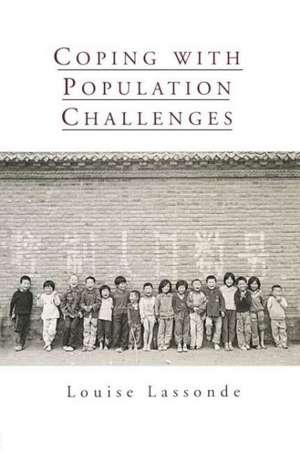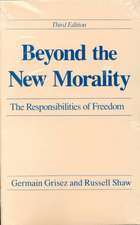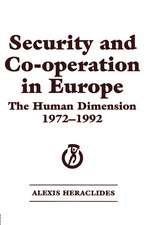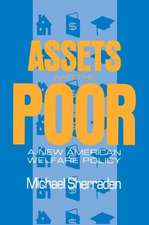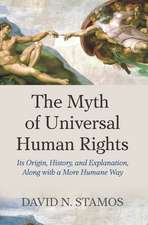Coping with Population Challenges
Autor Louise Lassondeen Limba Engleză Paperback – 17 iul 2014
| Toate formatele și edițiile | Preț | Express |
|---|---|---|
| Paperback (1) | 316.50 lei 43-57 zile | |
| Taylor & Francis – 17 iul 2014 | 316.50 lei 43-57 zile | |
| Hardback (1) | 608.60 lei 43-57 zile | |
| Taylor & Francis – oct 2009 | 608.60 lei 43-57 zile |
Preț: 316.50 lei
Nou
Puncte Express: 475
Preț estimativ în valută:
60.58€ • 65.83$ • 50.92£
60.58€ • 65.83$ • 50.92£
Carte tipărită la comandă
Livrare economică 21 aprilie-05 mai
Preluare comenzi: 021 569.72.76
Specificații
ISBN-13: 9780415846806
ISBN-10: 0415846803
Pagini: 196
Ilustrații: Illustrations
Dimensiuni: 156 x 234 x 18 mm
Greutate: 0.29 kg
Ediția:1
Editura: Taylor & Francis
Colecția Routledge
Locul publicării:Oxford, United Kingdom
ISBN-10: 0415846803
Pagini: 196
Ilustrații: Illustrations
Dimensiuni: 156 x 234 x 18 mm
Greutate: 0.29 kg
Ediția:1
Editura: Taylor & Francis
Colecția Routledge
Locul publicării:Oxford, United Kingdom
Cuprins
Tables and FiguresAbbreviationsAcknowledgmentsIntroduction: A New Perspective 1. Points of ReferenceThe History of the Population DebateThe Ideological ContextThe Structure of the International NegotiationsThe Cairo Conference: Appearance and Reality2. A Life of Quality Reproduction, Women and the Family: Programme of Action A New Concept: Reproductive Health Recognition of Sexuality The Female Perspective Fertility Control and Reproductive and Life Patterns Freedom of Choice Women's Work outside the Home and the Well-being of Children The Diverse Types of Family 3. Population and DevelopmentPopulation and Development: Programme of ActionThe Framework of SustainabilitySustained Economic Growth to Combat PovertyThe Right to DevelopmentTwo Axioms to be put into ContextFeeding the People of Tomorrow: A Two-sided ProblemThe Populations of the Arid Regions4. The Gaps in the Programme of ActionMortality, Ageing and Migration: Programme of ActionGeneral MortalityPopulation AgeingThe Challenges of MigrationThe Political Dimension of Population5. Practical MeasuresProgramme of ActionThe Dangers of a Headlong RushDemocracy: A New Fashion or a New Dynamic?The New Partnership between Myth and Reality6. Review of the International NegotiationsDifferent AssessmentsThe Latin ApproachThe Anglo-Saxon ApproachResolving the InconsistenciesThe Demographic Perspective: The Risk of Irrelevance7. Coping with the Challenges Facing UsFrom Population Control to the Transformation of SocietiesFrom Policy-making to Decision-makingThe Economic Decision-making FrameworkThe New Production of Goods and Standards of UtilizationConclusion: Population as an Ethical IssueNotes and ReferencesIndex
